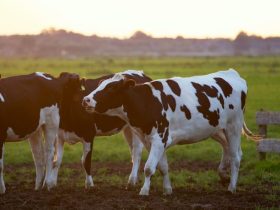Determinants of Dividend Policy for Agribusiness
Dividend Policy is a must for any business and determinants of dividend policy for Agribusiness are essential. Factors that decide a company’s dividend policy for exposure purposes are divided into:
Dividend payout ratio:
The ratio of dividends to net income is the dividend payout ratio (D / P ratio). A significant feature of a firm’s dividend policy is the dividend payout ratio, i.e. the proportion of the net profits paid as dividends to the shareholders. Consequently, dividend policy requires the decision to pay out profits or keep them in the company for reinvestment. The dividend payment reduces the cash, and hence the total assets. On the other hand, retained earnings represent a funding source. Since dividends mean cash outflow they hamper the company’s longer-term development. The payment of dividends also influences the price of shares: a low D / P ratio can cause a decrease in the share price, whereas a high D / P ratio can lead to an increase in the share market price. Hence the D / P ratio is a big dividend policy determinant.
Stability of dividends:
The second major aspect of dividend policy is dividend stability which refers to the consistency or lack of variability in the dividend stream. In more concrete terms, this means that a certain minimum dividend sum is charged on a regular basis. Investors support a stable dividend and there are many explanations why they would prefer a stable dividend strategy and pay a higher price for the stock of a company that follows dividend payment consistency. So, dividend stability plays a critical role in dividend strategy.
Legal, contractual, internal constraints, and restrictions:
Certain legal, contractual, and internal conditions and obligations also influence the dividend strategy of the company. The legal factors derive from certain regulatory provisions, the contractual constraints emerge from certain loan agreements and the internal constraints result from the liquidity situation of the company.
Owner’s consideration:
The dividend strategy is often influenced by the owner’s evaluation of the shareholders’ tax status, investment opportunities, and the dilution of ownership. Undoubtedly, creating a strategy that will optimize the resources of each owner is nearly impossible. The company must strive for a dividend strategy that has a positive impact on the majority of equity shareholders’ capital.
Capital market consideration:
Another aspect that can have a strong effect on dividend policy is to what degree the company has access to the capital markets. In case the firm has easy access to the capital markets, it may adopt a liberal dividend strategy either because it is financially powerful or broad in scale. On the other hand, if the company has only restricted access to the capital markets, it is likely to follow a low payout ratio for dividends. Therefore, dividend policy is guided by capital market conditions in this way.
Inflation:
Finally, inflation is the other factor affecting the dividend decision of the company. With rising prices, depreciation-generated funds can suffice to replace absolute equipment. To make up the shortfall, these companies have to rely on retained earnings as a source of funds. Thus, during the inflation era, dividend payouts appear.






Leave a Reply